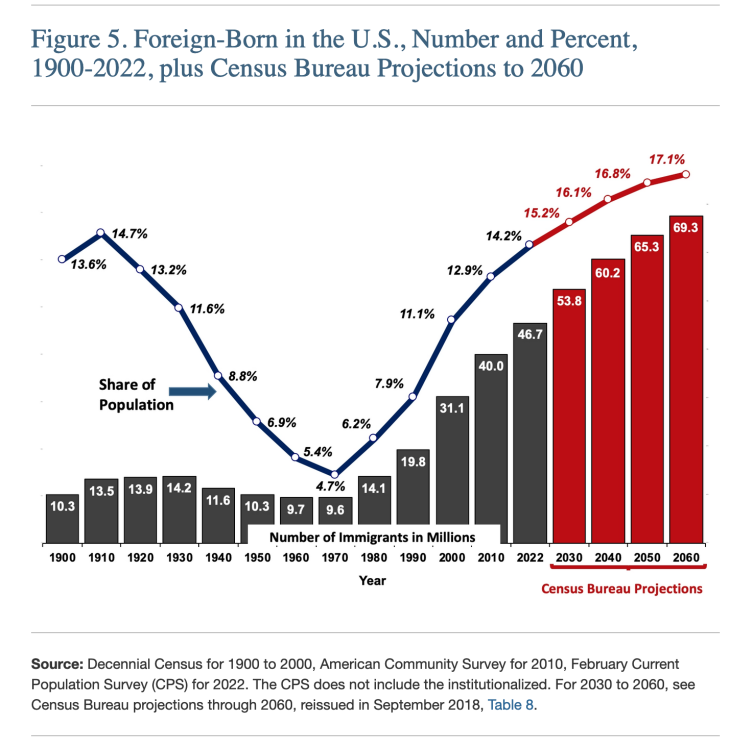Leaderboard
Popular Content
Showing content with the highest reputation on 05/30/2022 in all areas
-
6 points
-
6 points
-
A cancelled flight due to the airlines fault should be the same compensation as an involuntary bump.5 points
-
3 points
-
2 points
-
I thought TG:Maverick was great for a movie. Unrealistic and corny, yes, but who cares? Possibly the best Tom Cruise movie I’ve ever seen. It makes me sad that despite how many unbelievably awesome missions we’ve done, the Air Force is too retarded to have any good movies about our service.2 points
-
2 points
-
2 points
-
Not a fair comparison my dude. Mav is not dumb, he could quickly see what Charlie was becoming, a tired old hag who spent more time on her career and let her looks quickly fade. Sure she had the smarts, maybe Mav was intimated by that...maybe she could have even showed how smart she was by appearing on various aviation shows (ala Dr Rebecca Grant). She is probably somewhere high up in the pentagon right now and people who don't know Charlie probably say "that dude is squared away." Charlie chose her career over Mav. Enter Patty Benjamin, sure she was underage and an admiral's daughter when her and Mav first meet...but she kept her looks and she owns a fighter bar...so she's the winner in my book.2 points
-
1 point
-
Finally American isn't the worst at something! But, sadly, the bigger the melt down we have the better the bargaining power. Need a way to keep our greedy pilots out of DOTC otherwise we will never get a industry leading (or even on par) contract.1 point
-
I've been been banging (sts), the birth rate drum for sometime, over ten years ago I visited Russia after having written a paper on just this topic. The war in Ukraine has had all sorts of second and third order effects including running the draft early, running a second round and just last week raising the age of service in Russia to 65. They are in serious trouble. There is another factor not discussed in depth in your numbers, immigration is independent of birth rate and adds large numbers to our population each year. The United States is the top destination for immigration, with 47 million immigrants the U.S. has the highest population of immigrants in the world. For the last 30 years the U.S. has taken an average of 1 million LEGAL immigrants each year. During the same period the U.S. has had a falling average number of births from 4 million to 3.6 million in 2020. As such we "officially add approximately 4.6 million U.S. citizens each year, of which 20% come from other countries. Illegal immigration is the game changer. The population of illegal immigrants living in the U.S. has varied from 10-12 million over the past 10 years. We don't know how many have made it in undetected but in 2021 there were 1.7 million encounters according to CBP. CIS and U.S. Census data indicates approximately 1.3 million illegals made it in between Jan 2021 and Jan 2022, with the situation at the border and the future of Title 42 in doubt, the numbers are certain to rise. The impacts from illegal immigration are both positive and negative, the extent of which can be argued by others. What is clear is the increase in illegal immigration happened under Obama and now Biden. The numbers remained steady under Trump. Whatever your view, immigration (most specifically illegal immigration), will have a profound impact on our country by 2060.1 point
-
Note that all currencies are digital (USD, EUR, etc), I'm assuming you are asking about crypto. In Mainstream econ, money is a numeraire, which means that it's not a commodity like gold or corn, but rather a token with no consumption or investment use, that is agreed upon as an instrument for conducting all exchange and is fixed in supply (generally by the gov). Folks in the crypto space tried to create the numeraire (a ledger where a token for exchange can exist and bank or gov money is peripheral, rather than the other way around). Except that BTC, for example, has a real input requirement in order to exist (energy). If crypto had no input requirement, it simply existed like a phantom, then it would have the properties of a numeraire. There are lots of interesting perspectives on crypto, many conflicting one another, which makes it a very large topic. One of the best places to start on the topic would be Desan, because coinage and crypto are similar in that the quantities are [generally] fixed, and we have thousands of years of data on coinage economic systems. Crypto addresses many of the problems identified with coinage: [nearly] infinite divisibility, no loss through wear, and it cannot be diluted [recoined], these are common examples of issues people bring up related to coinage. Because metal content in coinage in early UK was usually fixed compared to the continent, as the crown made explicit their support for creditors (owners of real wealth and holders of coin). The population generally never owned any coinage and it was not used in exchange where the price of goods and services required breaking the coins into pieces so small that they were easy to lose or be destroyed quickly through use. Typically instead of using coinage, simple IOUs were arranged within local communities, based in the unit of account (coinage). Coinage was used mostly for conducting large trade, often long distance trade. Given a growing population, the purchasing power of a fixed stock of coinage had a tendency to rise, which led to hoarding and outflows from Britain toward the continent, where it was regularly recoined and diluted by reducing the amount of metal per coin in order to create more coins for circulation at a value specified by the state. If the value of the metal in the coins was worth more somewhere else due to a redenomination (dilution), people would melt coins down for the metal and take it there, leaving the domestic population without any coinage for settling IOUs or paying taxes. This lead to compeitive redonominations between states who needed coinage to make payments related to war. When the quantity of coinage in the UK economy fell, it reduced economic activity and the outcome was a great deal of innovation in finance in Britain between the crown and creditors facing shortages of metal and war demands, such as gov borrowing, tally sticks, and later bank notes. The holders of coin in Medieval Britain successfully fought against dilution in order to maintain their own power to command real resources. The crown had an opposite interest in ensuring the real resources it wanted or needed could be acquired. When the value of coin was too high, the crown would benefit by ordering that only newly minted money was valid and require all old coins be brought to the mint for recoining (making them 'current'). By creating more coins (reducing weight or adding other metal) than what was brought to them, the crown could create tokens for themselves for making payments. The gov did not have to source the metal, as coining was a monopoly of the crown, people dug it up or collected coins and brought it to the mint. At play here is a dynamic between a state, which needs things and is the sole issuer of money, and holders of those coins, who do not have legal authority to command resources like the crown does, instead they use the money issued by the state. Diluting and issuing coinage was a source of income for the crown (seigniorage) and a means to correct imbalances between the need for coin to conduct exchange, a growing population, prices, and a fixed supply of metal. If crypto is adopted, like any foreign currency outside control of the state, it means that state no longer has to power to fund itself through money issuance, and in many respects can be summarized as a removal of state sovereignty: the capacity of the state to govern is reduced. Central Bank Digital Currencies (CBDCs) fall into two broad categories: Account-based and Hardware-based tokens. If a CBDC is created in the form of accounts, this means you and I have access to reserve deposits on the Fed ledger, either directly, or via some private provider who organize the interface to the central bank's ledger. This means you can hold cash in an online account at the Fed. Digital cash. A Hardware-based token CBDC is essentially cash on a hardware wallet. You load it just like you put cash in your wallet, and those tokens are Fed liabilities, just like cash. Hardware-based tokens are anonymous, like cash. Account-based CBDCs are just like online banking with the Fed. If cash is eliminated then the Fed can push rates negative, and you can't remove your money from the bank, as cash no longer exists. The idea is that by pushing rates negative, and taking money our of your account every day, it compels people to spend their money. Which is false. The desire to save increases as rates become more negative, such as in Germany.1 point
-
If we want to hijack this thread into the relevancy of the USMC and/or why they need heavy armor for their actual mission, I suggest we just start a new thread. Spoiler alert on my opinion is the Marines need to not be Army 2.0. Regardless, I completely agree with you that tanks can be very valuable even against an ATGM equipped enemy. You nailed it with how you use them is the key to success. Ball walking down the road in a bunch of tanks ain’t the way to do that.1 point
-
Not really… For all the “it’s the death of Tanks” nonsense, there is nothing on the ground that can replicate or replace the Tank. More to the point, just because you are watch the Russians ignore the most basic tactics and make it easy for the defender doesn’t mean it’s a reasonable assumption to say tanks can’t attack an ATGM equipped defender. And while I’m sure somebody will bring up Israel in Lebanon getting a company of Merk’s torn up, a more thorough examination of that battle shows it was not something you can apply as a universal or even normal outcome to the match up of forces. Advanced ATGMs like Javelin didn’t do as much to make the tank go extinct as they allowed light/airborne/air assault infantry a capability to actually survive in the defense, which was something it didn’t organically possess before. Sent from my iPhone using Tapatalk1 point
-
1 point
-
Ricky Gervais' new comedy special on Netflix is pretty good; not gonna make the alphabet people happy...1 point
-
About 30 min into top gun I thought it was going to end up overhyped but damn, the end was awesome. Great flying scenes throughout. My wife, 9yr old daughter and 12yr old son all really liked it. Def see it in theater preferably a imax or Dolby.1 point
-
They asked me what drove me to pursue a masters, I said because I had to for promotion. They then asked if I still would have done it had that not been a promotion requirement and I said “not a chance.” Their faces were priceless. But I think they appreciated the honesty and not some BS line about “bettering” myself.1 point
-
1 point
















(1).thumb.jpg.7759999c13b3f642753de813ad11dd09.jpg)


